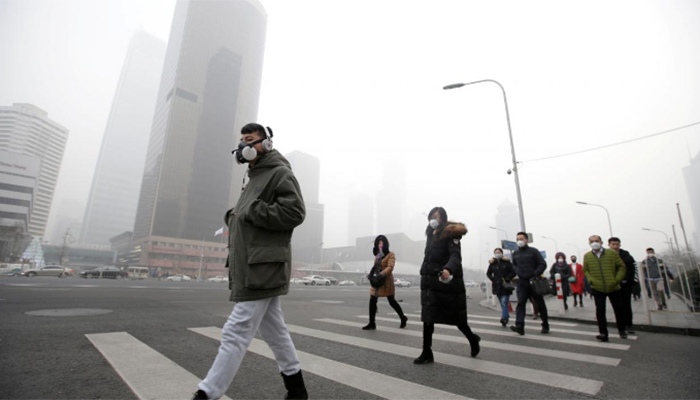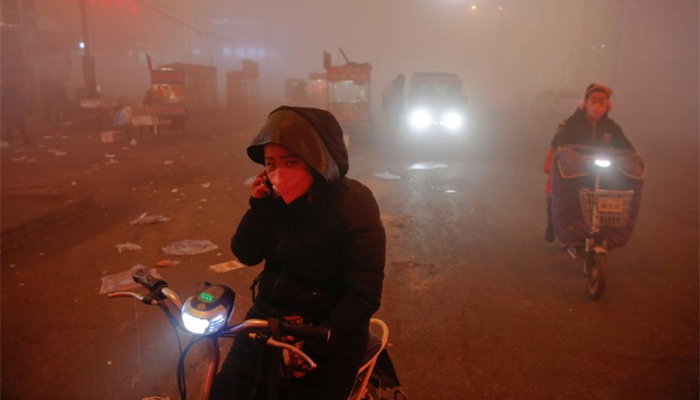Northern China smog cuts life expectancy by 3 years versus south: study
September 12, 2017

SHANGHAI: Air pollution caused by coal-fired winter heating has slashed life expectancy in northern China by more than three years compared with the south, according to a new study, underlining the urgency of Beijing’s efforts to tackle smog.
Researchers with the Energy Policy Institute at the University of Chicago (EPIC) said average lifespans north of the Huai river, where China supplies mostly coal-fired winter heat, were 3.1 years lower than in the south, which is not covered by the state heating policy. EPIC’s study cites long-term smog exposure as a primary cause of the difference.
In a statement, EPIC said its study examined pollution and mortality data in 154 cities from 2004 to 2012, and found higher death rates were due entirely to increases in cardiorespiratory illnesses. EPIC didn’t give an absolute number for average life expectancy but said its study was the first to focus on differences in air quality north and south of the Huai river.
“We know on highly polluted days more people die and more people are sick, but what this study helps to isolate are the consequences of long-run sustained exposure,” said Michael Greenstone, EPIC director and one of the report’s authors.
China is in the fourth year of a “war on pollution” designed to reverse the damage done by decades of untrammelled economic growth and allay concerns that hazardous smog and widespread water and soil contamination are causing hundreds of thousands of early deaths every year.

According to EPIC, if China were to comply with World Health Organization air quality standards, its people could live 3.5 years longer on average.
EPIC said its study was able to isolate the impact of air pollution on health in northern China versus the south.
Every 10 micrograms per cubic meter of additional long-term exposure to smog particles cuts life expectancy by 0.6 years, the study found.
Average readings of PM2.5 pollution - breathable airborne particles of less than 2.5 micrometres in diameter - stood at 45 micrograms per cubic meter in China from January to July, with the northern Beijing-Tianjin-Hebei region reaching 69 micrograms. The national standard is 35 micrograms.
Beijing has promised to impose tough industrial and traffic curbs this winter and is also in the process of shutting thousands of coal-fired boilers.
The government has acknowledged pollution is a health hazard but researchers have said more data was needed to understand its full effects, especially when it comes to the specific role it plays in diseases like lung cancer.
“We have enough evidence for the short-term effects of air pollution, but for long-term health, it is far from sufficient,” said Kan Haidong, a professor at the School of Public Health at Fudan University in Shanghai, adding that the government has recently commissioned new studies. Kan wasn’t involved in the EPIC work but has worked on his own pollution studies.
“In the next five years, there is going to be more and more evidence linking air pollution with health in China,” he said.











